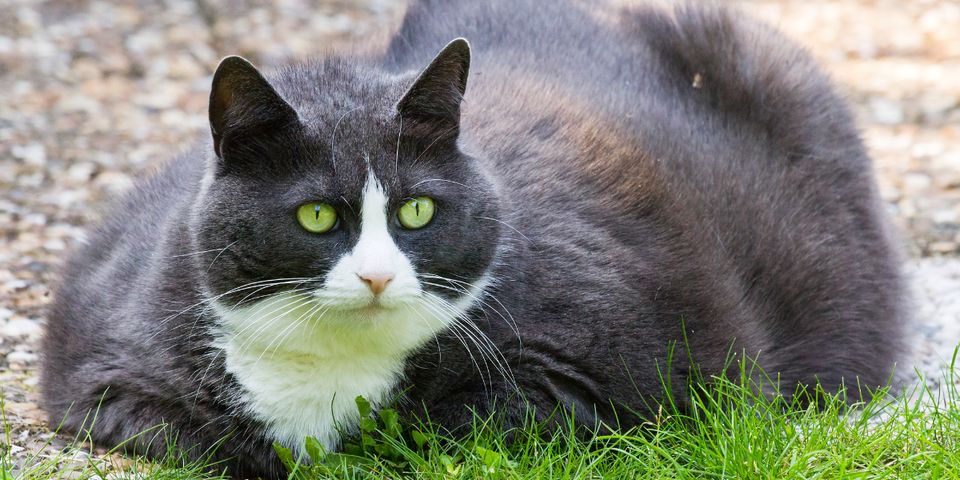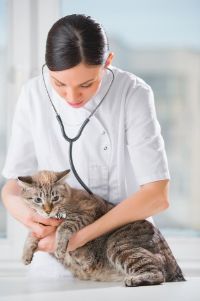
Feline obesity, typically defined as a bodyweight 20% or more above normal weight, is a growing problem among household cats. Unfortunately, many people don’t realize their cat is overweight or don’t understand the potential health consequences until their veterinarian brings up the issue during a pet health exam. Here’s what every cat owner should know about feline obesity.
What Makes a Cat Obese?
Recognizing obesity in your pet is the first step in improving their health. Excess weight is sometimes harder to see in cats, especially those with long hair. The easiest way to check your cat at home is by rib coverage.
Hold your cat and gently feel for their rib cage, right behind the shoulder blades. If it is difficult to feel or find your pet’s ribs under the layer of fat, they may be overweight or obese. Many veterinarian clinics use a scoring scale of 1 through 5 to assess body condition, where 1 is very thin, 3 is normal, and 5 is obese.
Like any animal, cats gain weight when their calorie intake exceeds the energy they expend. This is common in households that practice free feeding, where dry food is left out for cats to eat throughout the day, coupled with a lack of activity. Cats that don’t have enough toys or adequate opportunities to play often aren’t getting enough exercise.
What Are the Health Risks of Obesity?

Obesity can shorten a cat’s expected life span and increase their risk of developing many health disorders, including heart disease, diabetes mellitus, osteoarthritis, lower urinary tract disease, and many types of cancer.
Anesthetic complications are also more common in obese pets, causing problems in the respiratory and cardiovascular systems. This can make surgery and veterinary care that requires anesthesia, such as dentistry, much more difficult. Obesity can be detrimental to a cat’s overall health and quality of life.
How Is Obesity Treated?
It is not appropriate to simply lower the volume of food you feed your cat, as sudden weight loss can cause serious health issues. Losing weight should be a slow and steady process, involving no more than a 1% to 2% loss in total body weight every week. Always work with a veterinarian to determine the healthiest diet for your pet.
Once your vet has confirmed your cat’s body condition through a pet health exam, you can begin discussing a unique weight loss plan. This usually involves a specially formulated nutritional product, carefully measured portions, adjusted meal frequency, and regular weigh-ins.
Do you suspect your feline friend is overweight or obese? The experienced team at Appalachian Animal Hospital in Morristown, TN, will help you return your cat to a healthy weight. This veterinary hospital offers comprehensive care to ensure the complete health and well-being of your pet, including annual checkups and pet health exams, dentistry, vaccinations, nutritional health advice, and 24-hour emergency services. Learn more about their services online and call (423) 587-4393 to schedule an appointment.
About the Business
(21 reviews)
Have a question? Ask the experts!
Send your question

